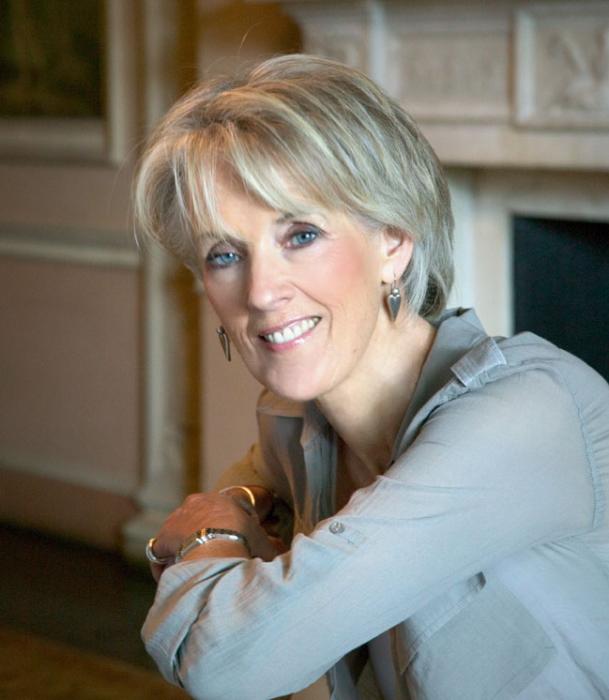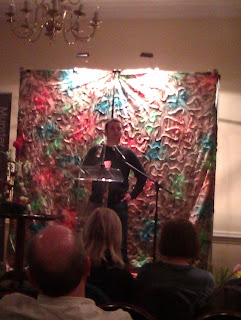360 Script Writing Festival 2012
360º
is an annual festival of inspiring and professional workshops offering
craft skills and industry knowledge across the different mediums: TV,
Screen, Radio and Theatre. The festival is one of the best
opportunities through the year to meet likeminded and industry people in
Belfast.
WHO IS IT FOR? Workshops and talks are for people interested in making a living from script writing in TV, Radio, Film or Theatre.
WHEN? Wednesday 25th until
Friday 27th of January 2012.Workshops and talks will take place during the day.
We have a networking event on Wednesday evening and we are heading to the pub on Thursday evening.
WHERE? Studio One, Broadcasting House, Ormeau Avenue, Belfast
BOOK! The workshops are free. There is a limited number of places so please book early by contacting Bronagh Taylor on
Bronagh.Taylor@bbc.co.uk or call on 02890 338 845.
Please state clearly which workshops you are interested in. When a workshop or talk is full we will keep a waiting list.
PROGRAMME: WEDNESDAY 25th JANUARY11.00 – 1 pm TV TALK (80 places)
6Degrees – A brand new drama series for BBC Northern IrelandBBC
Northern Ireland will launch 6Degrees in February 2012. Over 6 half
hour episodes the first series follows six freshers as they arrive from
Cork, Derry, Newry, London and Belfast, adapt to their new surroundings
and crash through their first term at university. The series gave
writers Michael Shannon, Eoin Clelland and Bronagh Taggart their first
TV Credits. This will be an opportunity to get a sneak preview of the
show and hear from the writers about the process and what is unique
about working on a drama series set in Northern Ireland. You will also
get the chance to put your questions to the co-creator and producer
Colin O’Donnell about the challenges creating a TV series.
2 – 3.30pm FILM TALK (80 places)Working with truth - Good Vibrations Writers
Glenn Patterson and Colin Carberry discuss their screenplay about the
life of Terri Hooley. “It tracks Terri's life from the late sixties
right through the whole period of The Troubles. Terri was the person who
put out 'Teenage Kicks' by The Undertones and was involved in the punk
scene in a big way; it's a brilliant story,” The writers will talk
about how they went about taking a real life story and creating a
compelling and entertaining movie.
3.45 – 5.15 THEATRE TALK (80 places)Using Video on Stage with Conan McIvor The
use of video, moving image and technology in stage plays is now
happening more frequently. How do we as writers think about the
potential of this mixed media when we sit down to shape our ideas for
the stage? Video artist Conan McIvor has worked with many theatre
companies using video, live relay and other new technologies. Recently
he ran the Tinderbox Writers Lab 2011, which explored using video as
part of the narrative. Conan will share his experiences from past
projects, the Writers Lab and upcoming production Marianne Dreams
looking at examples of the use of video on stage as well as exploring
its potential.
5.30 – 7PM NETWORKING EVENT It’s not what you know it is who you know!Your
chance to meet the industry people on the search for talented writers
for TV, Film, theatre and radio. Your chance to meet the following
companies - Double Band, Big Fish, Mammoth, Northern Ireland Screen The
Abbey Theatre, Kabosh Theatre Co, Tinderbox and more. There will also
be freelance script editors and script readers around.
THURSDAY 26th JANUARY11.00am – 1.00 pm TV TALK (80 places)In April eight writers will be selected for the BBC Writers Academy
Jenny
Robins will give you the lowdown on the BBC Writers Academy, a major
initiative aimed at discovering and training the next generation of
writers for BBC One’s flagship shows: EastEnders, Casualty, Holby City,
and Doctors. Eight writers are selected out of hundreds of applicants
to undergo the intensive 15-month programme designed to equip them with
all the skills necessary to write successfully for BBC Drama. "You
can't teach writing. What you can teach is structure, and if writers
master that, it allows them access to their voice - and it is those
voices that will keep the industry thriving." - John Yorke, Controller,
Drama Production. The online application forms can be completed
through the BBC Jobs website - after 11th April 2011. Find out what
they will be looking for and further details of what the course
entails.
2.00 – 3.30pm Kate Rowland - TV WORKSHOP (NOW FULL)Getting to the heart of the matter - TV Series WorkshopHow
do you make a big idea a brilliant idea? What is at the core of the
programmes you have loved and cherished? How do you connect to the heart
of your story? How do you make your ideas feel fresh and distinctive
and avoid stories and TV formats feeling contrived? These are the kind
of questions we will be seeking to answer in this TV workshop. By
reflecting on shows from the past and present that we have loved and
hated and working with your own ideas we will try to get to the ‘heart’
of TV drama.
4.00pm – 5.30pm – Practical TV Workshop (NOW FULL)Great character writing. TV WORKSHOP How
do you express the essence of a character as quickly as possible? How
do you give all your characters their own distinct voice? What will
help your audience connect with your characters? Great character
writing will give your writing authenticity and in this practical
workshop you be analysing examples and will be giving it a go yourself
6.30 onwards PUBFRIDAY 27th JANUARY11 – 1pm THEATRE WORKSHOP (NOW FULL) The world (of the play) is your oyster! When
you write a script you are in charge of how the world of the play
works. This workshop will look at how and why we might create worlds
that work differently from naturalism whether you are writing a fantasy,
a musical, a surrealist work or working with metaphor. Being the
master of your universe also comes with responsibilities towards your
audiences, your characters and what the play is about. We will explore
the possibilities and the consequences of writing a world with a
completely new logic, how to shape this new world and how to make it
work for you. A practical workshop with Hanna Slattne, Tinderbox
Theatre Company
2 – 3.30pm THEATRE TALK (80 Places) To Playwright and Produce! With Deirdre Kinahan Deirdre
Kinahan is an award winning writer and the Artistic Director of Tall
Tales Theatre Company. She began writing plays in 1999 whilst juggling a
young family and an emerging theatre company. She quickly concluded
that writing for theatre without audience or production is pointless and
so began to self-produce, creating commissions and finding ways for
her plays to be on in theatres in Ireland and abroad. Continually
inspired by other writers and passionate about theatre Deirdre will
talk about how the contemporary playwright can generate work, make
connections and grow artistically.
4.00 – 5.30pm RADIO TALK and WORKSHOP (80 places) Want to get your short story recorded for BBC R4?BBC
Northern Ireland's Radio Drama department are holding a workshop and
Q&A on everything you need to know about writing short stories for
radio. Ian Sansom, author of the Mobile Library detective series,
Afternoon Reading writer and Creative Writing Lecturer at Queens
University, will be sharing his wisdom and wit alongside Radio Drama
Producer Heather Larmour. They will also be launching an opportunity
for students to pen an Afternoon Reading to be recorded and broadcast on
R4 in 2012/13 - find out full details on how to submit your story.










































